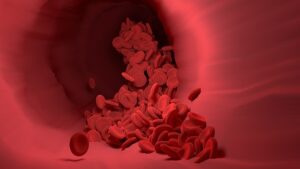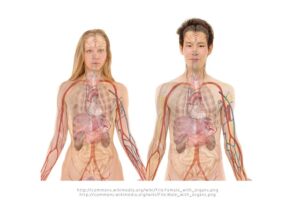One of the serious medical diseases that need prompt and effective treatment is cancer. When a patient is given a cancer diagnosis, the doctor recommends the best course of action. The primary determinants include the cancer’s kind, stage, location inside the body, and extent. Chemotherapy is thus the most widely used form of cancer treatment in Gurgaon.
 |
However, the introduction of alternatives to chemotherapy is a result of scientific breakthroughs. Hormonal therapy, immunotherapy, targeted therapy, and other treatments may be used as chemo alternatives. The severe side effects of chemotherapy are the key factor influencing people to select these alternatives.
Why Are People Looking for Alternatives to Chemotherapy?
Chemotherapy destroys cancerous cells, but despite its efficiency and ability to save lives, it is quite dangerous. Anaemia, tiredness, hair loss, nausea, and vomiting are a few of the significant side effects. Patients may also need to undergo additional therapies or procedures, such as radiation therapy or surgery, before or after chemotherapy.
Depending on the type and stage of the cancer, doctors may recommend additional medications to chemotherapy to help patients avoid the adverse effects of these potent but dangerous drugs. Cancer patients may prefer to review several chemotherapy options with their oncologist and make choices based on the kind, severity, and location of their cancer.
How Can Alternative Medicine Help People with Cancer?
Alternative cancer treatments may not be able to cure your cancer, but they may be able to assist you manage its symptoms and indicators, like fatigue, stress, pain and nausea, vomiting, worry, and difficulties sleeping.
Treatments that healthcare professionals don’t generally offer are referred to as “alternative medicine.” Doctors who treat lung cancer and other healthcare professionals are now adding complementary medicines in treatment plans in addition to traditional ones. As researchers investigate various treatments, the evidence in favour of it increases. The doctors frequently treat cancer patients using an integrated medicine approach.
A number of symptoms associated to cancer and cancer treatment may be lessened by combining these evidence-based integrative medicine treatments with conventional medicines. However, complementary or alternative therapies typically do not totally replace traditional therapies. With the assistance of your doctor, you can weigh your alternative therapy options to achieve the perfect balance.
Other Treatment Options
1. Surgery
With the exception of blood cancers, most malignancies can be surgically treated, with the top oncologists in Gurgaon aiming to completely or nearly completely remove a solid tumour. This treatment works especially well on early-stage tumours that haven’t spread to other body areas.
Although it depends on the tumor’s size and other factors, surgery is frequently the only treatment needed for patients with stage 1 cancer. Surgery can also be used to treat cancer even when the tumour has spread from its original location.
Even for patients with advanced disease, surgery plays a vital role in broadening the options for cancer treatment. It’s great that surgery now serves a larger variety of purposes. Depending on the type of cancer and its stage, minimally invasive surgery may be a solution.
2. Immunotherapy
A relatively recent cancer treatment called immunotherapy encourages the patient’s immune system to fight cancer. Immunotherapy can be used to treat a variety of cancer types, and it has the potential to be effective in treating even the most advanced and difficult-to-treat tumours. However, a number of effective, FDA-approved drugs can now treat a variety of cancers.
Immunotherapy, which is sometimes the initial line of treatment for some patients, has given many people more options. Patients don’t lose their hair. They don’t feel or vomit nauseous. Usually, if any, they only experience minor side effects.
However, depending on the medication taken and the kind of cancer being treated, some patients may experience negative side effects. Immunotherapies are given via IV infusion. Immunotherapy also provides some patients with advanced cancers with a therapeutic option they did not previously have, sometimes extending their lives past what was expected.
3. Targeted Therapies
Doctors who treat lung cancer employ precision medicine, also known as targeted therapy, to develop medications specifically for each patient’s malignancy. By analysing a tumour or blood sample, they are able to determine a genetic profile. This enables medical practitioners to administer drugs to patients that specifically target genes linked to cancer.
Up to five or six gene pathways have the potential to activate or deactivate cancer. Doctors can identify which medications to use and which to avoid using through genetic testing.
Medication used orally or intravenously either kills or stops the growth of cancer cells. Similar to immunotherapy, one can choose targeted therapies at any time, including as the first line of treatment, to stop cancer from returning or, in the event that it does, to treat it once it has.
4. Hormone Therapy
The body produces hormones, proteins, and other chemicals that regulate the behaviour of particular cell types. For instance, hormones like progesterone, oestrogen, and testosterone are essential for the efficient performance of many body functions.
Insulin, cortisol, adrenaline, and thyroid hormones are among the extra hormones found in your body. The body produces a variety of hormones from various glands and organs.
Some tumours require hormones to develop and spread. Treatments that change or block hormones may therefore occasionally aid in reducing the growth of particular tumors. Using hormones to treat cancer is referred to as hormonal therapy, hormonal treatment, or endocrine therapy.
The majority of sex hormone-dependent instances of breast cancer and prostate cancer respond favourably to hormonal therapy. Other cancers can also be successfully treated with hormone therapy.
Hormone therapy is a systemic treatment because the hormones it targets circulate throughout the body. Hormones are sought after and targeted by the drugs used in hormone treatment all over the body. This distinguishes it from therapies like radiation therapy and the majority of surgical procedures that target a specific body part.
So, there is no doubt that cancer can be treated without chemotherapy. The best oncologists in Gurgaon should be consulted. They can therefore assist in recommending the best strategy that would benefit your case.





